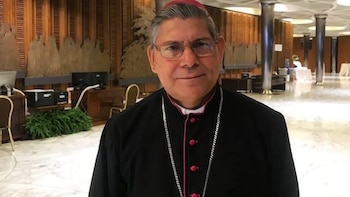
The Australian Government expressed its “deep disappointment” at the future signing of the controversial China-Solomon Islands security pact, considering its “lack of transparency” and “its potential to undermine stability” in the Pacific region.
Australia, which recognizes Honiara's right to make “sovereign decisions” in the area of security, says that it “will continue to seek more clarity on the terms of the agreement and its consequences for the Pacific region,” notes a statement released last night by Foreign Minister Marise Payne and the Minister of Development Regional and Pacific, Zed Seselja.
For the ocean country, “the Pacific family is best placed to meet the security needs of the region”, instead of the pact with the Asian giant, which has not yet signed, and which has especially alerted Canberra.
On Wednesday, Prime Minister Scott Morrison stressed that “incredible pressure on Pacific nations always comes from China, which seeks to undermine regional security,” noting that his country focuses on the Pacific to avoid “those risks,” public channel ABC reports.
His counterpart from Solomon Islands, Manasseh Sogavare, previously assured before Parliament today that his government has entered into the agreement with “eyes wide open” and suggested that this alliance will help strengthen its police forces.

“We intend to strengthen and strengthen our police capacity to deal with any future instability, by adequately equipping the police to fully assume the country's security responsibilities, in the hope that we will never have to resort to any of our bilateral security agreements,” emphasized Sogavare.
This pact, which became known last month by the leak of a draft on social media, opens up the possibility that China will send security forces at the request of the Honiara Executive, as is already the case with Australia and other nations in the region.
However, the controversy arose over the fear that Beijing will establish a naval base in this strategic nation of the region, a possibility that has already been rejected by the Solomonese president.
The signing of the pact, without specifying the date and venue, was announced last night by the Chinese Foreign Ministry spokesman, Wang Wenbin, who said that this pact is “not aimed at any third party”, referring to Australia and New Zealand, which are suspicious of Beijing's growing influence in the Pacific.
Sogavare, which broke its alliance with Taiwan in 2019 to recognize China, is also facing strong opposition within the country and in November 2021 violent protests took place in the capital, resulting in three deaths and the request for police to be sent to Australia, New Zealand, Fiji and Papua New Guinea.
According to another document recently leaked to the press, China requested to send weapons and agents for the protection of its diplomats during the recent protests in Honiara, which occurred in Chinatown among other areas, but this was rejected.
(With information from EFE)
KEEP READING:
Últimas Noticias
Debanhi Escobar: they secured the motel where she was found lifeless in a cistern

The oldest person in the world died at the age of 119

Macabre find in CDMX: they left a body bagged and tied in a taxi
The eagles of America will face Manchester City in a duel of legends. Here are the details

Why is it good to bring dogs out to know the world when they are puppies



